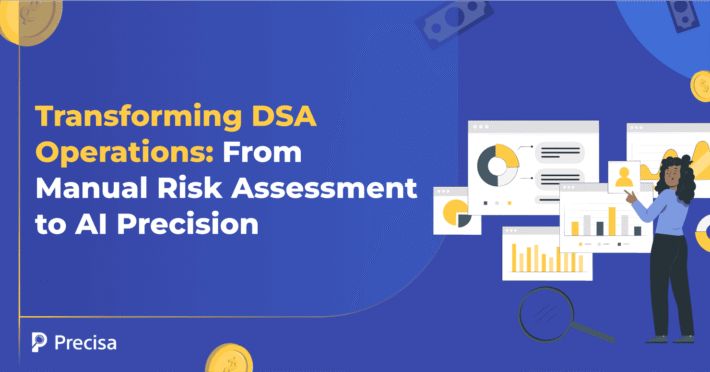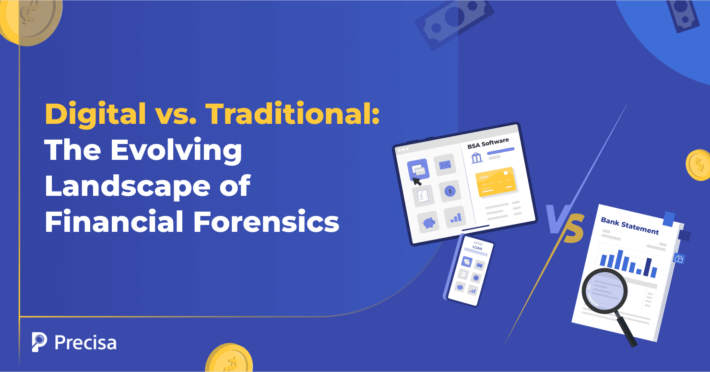Why Modern Lenders Must Offer Salary Loan Products Today

In June 2024, the Punjab & Bank signed an MOU with the Indian Army to facilitate salary accounts. HDFC Bank is also set to take over 60,000 salary accounts of employees and pensioners of the Southern Railway. The salary account facility banks offer helps businesses simplify employee payroll.
Simultaneously, the salary accounts vertical enables businesses to drive revenues. Banks can attract more corporate clients by providing value-added services such as salary loans. They can also leverage this feature to drive revenues.
Let us deconstruct salary loans, their advantages, and how banks can increase Return on Investment (ROI) with five best practices.
What are Salary Loans?
Salary loans refer to a unique category of loans offered by banks, which entails providing credit to borrowers with a salary account with the respective bank.
- Salary accounts are generally opened by businesses, nonprofits, and public sector organisations on behalf of their employees to help simplify the monthly payout process.
- These accounts are an important vertical for banks due to the sheer volume of bank accounts opened in one shot.
- Banks get access to business or organisational clients and individual customers who may stay on even when they leave their current employment.
- Such accounts help banks drive additional revenue via services such as salary loans, which the bank charges interest.
Key Advantages of Salary Loans
Offering salary loans comes with several advantages for banks, Non-Banking Financial Companies (NBFCs), and digital lenders.
A Revenue-generating Opportunity
Banks can earn revenues in a number of ways with salary loans.
- Borrowers pay interest on the loan.
- They may be charged a processing fee on the loan.
- Borrowers are charged additional interest when they default on an EMI.
- Partial payments and late payments may also invite additional charges.
- Borrowers may need to pay a prepayment fee if they decide to repay the loan to save on interest.
No Acquisition Costs
Since the borrower already holds a salary account with the bank, there are no additional customer acquisition costs. Hence, growing the salary loans vertical can help banks bring down the overall cost of lending operations.
Access to Borrower’s Financial Data
Lenders are always concerned about the risk factors when assessing a borrower’s finances. Lack of access to adequate data can prove to be a challenge.
However, many salary accounts function as the primary savings account of consumers who route all transactions through them. Hence, banks have access to adequate financial data to make accurate lending decisions.
No Documentation Hassles
A key benefit for borrowers is that there is limited paperwork involved in the application for a salary loan. The bank already has access to all the data and information needed. Hence, the loan can be processed online, and the funds disbursed quickly, reducing the turnaround time.
No Security/ Assets Needed
Salary account holders typically do not need to offer collateral against the loan. This is an added advantage for consumers who may not possess a credit history or assets.
Hence, salary loans bring in an aspect of inclusion into the credit framework.
5 Best Practices for Salary Loans Opportunities
Banks looking to grow their salary loans vertical must adopt the following best practices to boost operational ROI and drive profitability:
1. Comprehensive Financial Analysis
Traditionally, a borrower’s credit score was considered to be the most important metric when underwriting loans. However, bank transactions can offer much more insight into borrower behaviour and patterns.
Adopting cloud-based financial analysis software can help banks comprehensively analyse bank statement records. Here’s how:
- Every transaction is assigned a specific inflow or outflow category. The categorisation offers bankers a holistic view of a borrower’s cash flows.
- Data is automatically extracted from documents using optical character recognition, thus reducing errors, duplications, and omissions.
- The software offers an alternative credit score, which enables banks to make data-driven underwriting decisions.
- The entire analysis process is completed within minutes.
- Banks can generate detailed reports for further insights.
2. Superior Fraud Detection Capabilities
Artificial Intelligence (AI) in financial analysis software enables bankers to identify irregular transactional patterns. Such patterns can signify fraudulent transactions committed by borrowers.
These capabilities are highly valuable to bankers who review a large volume of loan applications every day.
3. Customise Loan Solutions
Rather than offering standardised products, banks must customise loans for each borrower. Salary account holders may have diverse credit needs and payment capabilities. Hence, this approach helps banks design loan terms and conditions that align with a borrower’s real-time needs, as well as cash flows.
In turn, loan products can be affordable and relevant. Salary loan borrowers are more likely to become repeat customers of salary loans if the terms and conditions are fair.
4. Adoption of Predictive Data Analysis
The use of AI has transformed how banks can leverage data analytics. For instance, banks can use AI-powered predictive data analytics to forecast the ability of borrowers to repay loans on time and in full. They can use multiple data points to run the numbers before making any decision.
Based on the results, they can reshape strategies to drive superior outcomes.
5. Customer-Centric Debt Recovery Processes
Banks must pay close attention to the debt recovery process to make it customer-centric, agile, and proactive rather than reactive.
- Payment communication and payment options must be customised to suit a borrower’s needs and preferences.
- They must engage with delinquent borrowers early in the loan repayment cycle.
- As cases get more serious, they must be assigned to agents with more expertise and understanding of specific debt recovery strategies.
- Banks may need to negotiate the terms and conditions in certain cases to propel faster repayment.
The Takeaway
Banks looking to scale their businesses must consider growing their salary loans vertical. This strategy comes with several advantages, such as revenue-generation opportunities, no or low acquisition costs, access to financial data for underwriting purposes, and the potential for higher ROI.
The use of tech-enabled solutions such as bank statement analysis software can equip banks to make their salary loan services more value-driven.
Presica’s user-friendly bank statement analysis tool aims to simplify the analysis process through automation, which enables the results to be delivered in minutes.
The software provides actionable insights on an easy-to-use dashboard, helping businesses make informed lending decisions.
Request a free demo today!




